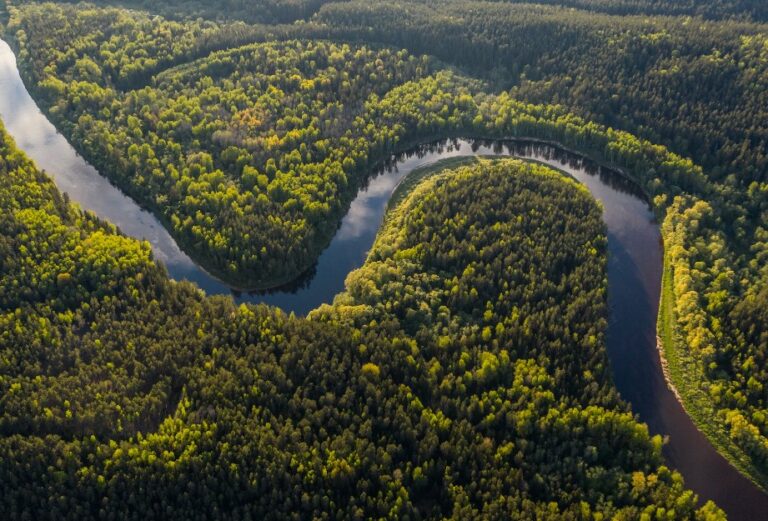Rivers, once emblematic of pristine natural beauty, are now facing an insidious threat – pollution. In the United States, a nation blessed with an intricate network of waterways, the specter of river pollution looms large, casting shadows on the ecological health and vitality of these crucial lifelines. This article embarks on a journey through the waters of concern, using the USA as a case study to unravel the causes, consequences, and the pressing need for remedial action against river pollution.
Table of Contents
The causes of river pollution in the USA
Industrial impact
The legacy of industrialization in the USA has cast a long shadow on its rivers. The discharge of industrial effluents containing heavy metals, chemicals, and pollutants into water bodies has been a historical concern. The Cuyahoga River in Ohio, infamous for catching fire multiple times due to industrial pollution, serves as a stark reminder of the environmental toll exacted by unchecked industrial practices.
Agricultural runoff
As an agricultural powerhouse, the USA faces the challenge of nutrient-rich runoff from expansive farmlands. Fertilizers, pesticides, and herbicides find their way into rivers, contributing to water pollution. The Mississippi River, often termed the ‘nutrient superhighway,’ bears the brunt of agricultural runoff, leading to the formation of vast ‘dead zones’ in the Gulf of Mexico.
Urbanization pressures
Rapid urbanization brings with it a suite of challenges for rivers. Storm water runoff laden with pollutants, inadequate waste management, and the encroachment of urban areas on riparian zones collectively contribute to the degradation of water quality. The Hudson River in New York is emblematic of the struggles faced by urban rivers contending with the impacts of a densely populated metropolis.
The 10 most polluted rivers in the USA
1. The Cuyahoga River
The Cuyahoga River stands as a poignant symbol of industrial pollution. Despite significant strides in cleanup efforts, it remains emblematic of the challenges faced by rivers with a legacy of industrial contamination.
2. The Mississippi River
The mighty Mississippi, coursing through the heartland of America, faces the intricate challenge of agricultural runoff. The prevalence of nutrient pollution in the Mississippi River has far-reaching consequences, impacting both river health and the Gulf of Mexico.
3. The Hudson River
The Hudson River, flanked by the towering skyline of New York City, grapples with the complexities of urban pollution. Efforts to clean up the Hudson exemplify the intersection of conservation and urban development in the USA.
4. Ohio River
The Ohio River, a vital waterway for the Midwest, bears the scars of industrial pollution. Contaminants such as heavy metals, chemicals, and industrial discharges continue to challenge the river’s ecological health, impacting both aquatic life and the communities that rely on its waters.
5. Allegheny River
Once an artery of industrial activity, the Allegheny River in Pennsylvania contends with the remnants of its industrial legacy. Efforts to revitalize the river face challenges from historical pollution, demanding a delicate balancing act between economic development and environmental preservation.
6. Delaware River
The Delaware River, flowing through urban corridors and wilderness alike, faces the impacts of urbanization. Industrial discharges, stormwater runoff, and municipal wastewater contribute to the pollution burden, requiring comprehensive strategies to protect this vital waterway.
Read also: How to prevent water pollution in 8 simple ways
7. Kanawha River
The Kanawha River in West Virginia grapples with the consequences of industrial activity, including chemical manufacturing and energy production. Chemical spills and discharges have left an indelible mark on water quality, necessitating ongoing efforts to mitigate the environmental impact.
8. Savannah River
The Savannah River faces challenges stemming from industrial discharges and the legacy of nuclear production facilities. Contaminants such as heavy metals and radioactive substances pose risks to both ecological health and the well-being of communities along its banks.
9. Rouge River
Once a casualty of heavy industry, the Rouge River in Michigan undergoes a process of environmental revitalization. However, the river still contends with the remnants of historical pollution, necessitating ongoing efforts to restore its health.
A call to clearer waters
As we navigate the troubling currents of the nine most polluted rivers in the United States, it becomes evident that immediate and sustained action is imperative. These rivers, once symbols of vitality, now serve as indicators of the environmental challenges that persist in the nation.
Through rigorous environmental stewardship, technological innovation, and community engagement, there is hope for these waterways to reclaim their status as life-sustaining arteries, supporting both nature and humanity. Only through collective efforts can we usher in an era where the rivers of the United States flow clean, clear, and free from the shackles of pollution.
Read also: Asia is the global epicenter of plastic pollution












